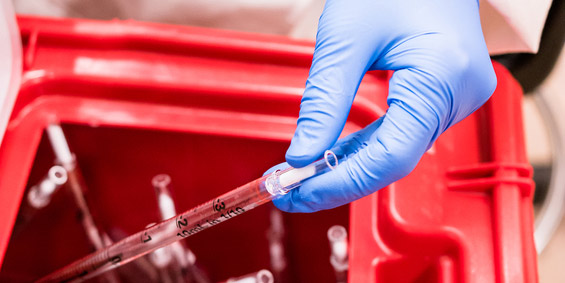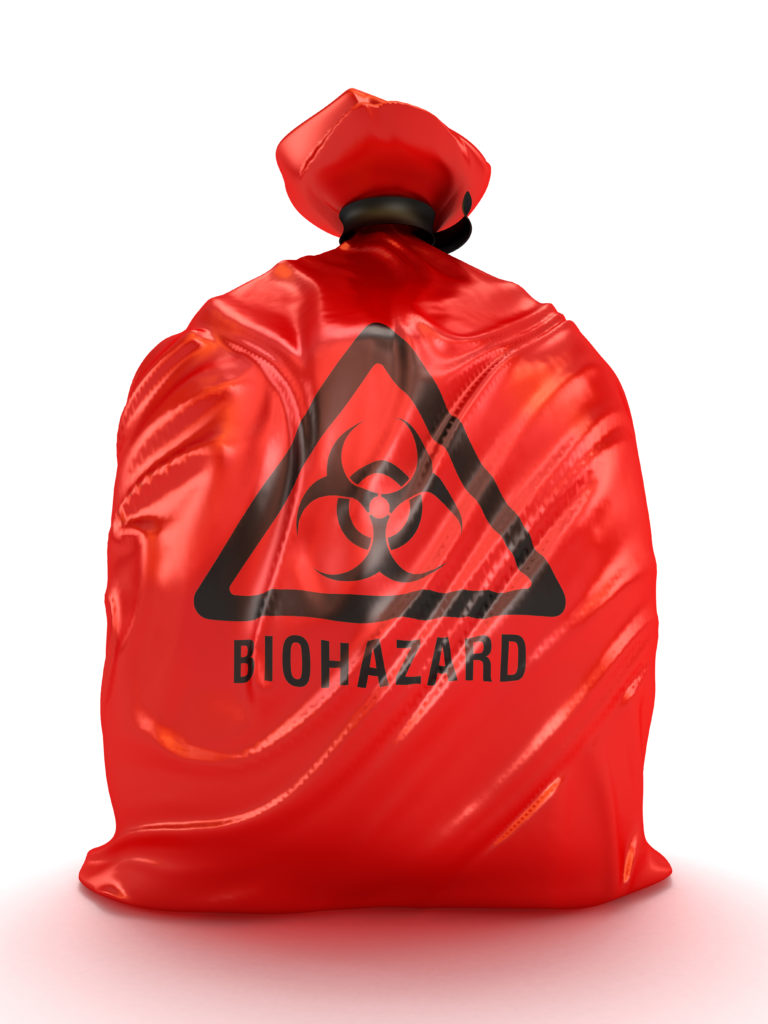Archive for February 2017
What’s Going in That Sharps Container?
Sharps containers aren’t just for needles. What else goes in that sharps container? If you’ve ever had blood drawn or received a vaccination at a healthcare facility, then you’ve probably seen the practitioner drop the needle into a sharps container. These containers are crucial for infection prevention; they are rigid, puncture-proof, and have lids that…
Read MoreDelaware Medical Waste Requirements
A look at Delaware medical waste requirements. Nearly all 50 states have enacted medical waste regulations, many of which are based on the federal RCRA standards. Of course, state medical waste standards vary diversely. Here is how medical waste is handled in the state of Delaware. In Delaware, medical waste requirements are managed by the…
Read MoreMedical Waste Recycling? Does it Happen?
Reduce, reuse, recycle doesn’t always apply to the medical waste field. Reduce. Reuse. Recycle. That is the EPA’s motto for protecting our environment, but this adage doesn’t always apply to the medical waste field. Medical waste has a different set of rules when it comes to disposal and reusing because of its very nature. The…
Read MoreConnecticut Medical Waste Requirements
A look at Connecticut medical waste requirements. Medical waste in the state of Connecticut is regulated by the Department of Energy & Environmental Protection (DEEP). Medical waste is often referred to as regulated medical waste, biohazardous waste, or, more simply, hazardous waste, but in Connecticut, medical waste is known as biomedical waste (BMW). According to…
Read MoreImproper Medical Waste Packaging: What You Need To Know
What are some of the improper ways that facilities can be caught red-handed when it comes to medical waste packaging? Medical waste packaging and labeling is the responsibility of the waste-generating facility itself. Packaging includes sharps containers, biohazard containers, red bags, and reusable containers. Failure to comply with safe containment is not only an environmental…
Read MoreColorado Medical Waste Requirements
A peek at Colorado medical waste requirements. Colorado’s medical waste disposal regulations and requirements are managed by the Colorado Department of Public Health and Environment (CDPHE). The aim of these requirements are the same as all other states: to reduce medical waste and to protect the environment from infectious disease. For healthcare facilities and other…
Read MoreTo Flush or Not to Flush? Pharmacy & Medication Disposal at Home
While the FDA has and still recommends flushing certain medications depending on the state, this isn’t the best course of action for medication disposal. Here’s why. Because medicines are commonly found in medicine cabinets, on top of dressers, in kitchen cabinets, and in other accessible locations, it is important to take stock of the drugs…
Read MoreCalifornia Medical Waste Requirements
A look at California medical waste management. To protect the public and the environment from potentially infectious disease, the state of California has implemented the Medical Waste Management Program as part of the Environmental Management Branch. This agency regulates the generation, handling, storage, treatment, and disposal of medical waste by providing oversight for the implementation…
Read More


